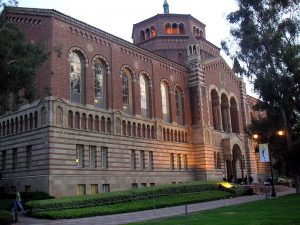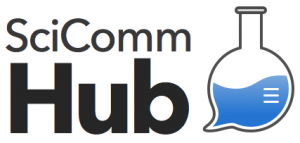UCLA Resources for Faculty and Instructors
The Center for Community Learning supports civic engagement for UCLA undergraduates and faculty through the integration of teaching, research and service alongside community partners.
The Center actively promotes good citizenship, leadership and social justice through service learning, internships and other community-based learning experiences.
In collaboration with campus academic departments, the Center offers UCLA undergraduates the opportunity to participate in civic engagement through a variety of structured, rigorous academic courses that link theory with practice. The research interests of faculty and students are connected to the needs and priorities of community partners throughout Los Angeles and in the state, nation and larger global community.
These activities foster civic skills and knowledge, a service ethic, and an informed perspective on issues of diversity and democracy. By so doing, UCLA fulfills its obligation as a public institution to educate persons who are good global citizens.
In addition, the Center offers an ongoing development program for faculty in order to enhance their knowledge of civic engagement, create a climate of reciprocal benefit and acknowledge their expertise in training UCLA undergraduates. Individual consultation is available for faculty who wish to develop new service learning courses or revise existing ones.
The Center for Community Learning offers a 495 to train graduate students in community learning pedagogy.
Visit the Center for Community Learning:

UCLA Library
The UCLA system of libraries offer a variety of services to students and instructors. These include workshops, online tutorials, and individual appointments for support with research and teaching.
Visit the UCLA library for more information including upcoming events:
http://www.library.ucla.edu/support

SciComm Hub is a community and collection of resources focused on science education, outreach, and communication. The Hub aims to assist students in exploring and finding careers in science communication, to provide a space for students, postdocs, and faculty to interact and network in the context of science communication, and to connect students to relevant resources and opportunities.
Visit SciComm Hub’s Website: scicommhub.com
The Instructional Improvement Grant Program supports curricular experimentation and development and instructional improvement of undergraduate offerings. Projects may be initiated by faculty, departments, or larger units. Proposals should address the specific needs of an undergraduate course or curriculum and explicate an appropriate and cost-effective response to a clearly defined pedagogical problem.
- Faculty Improving Teaching (FIT) Communities. These faculty communities of practice will be an opportunity for all grantees to receive ongoing feedback and support from fellow IIP-supported faculty members and OID consultants.
- IIP Grantee Reporting. Every grantee will be expected to present their project in some venue (which could be quite informal). An additional reporting requirement is to provide a list of other instructors or courses which might benefit from similar teaching approaches.
The OID recognizes that there are many areas open to interpretation, and strongly recommend a consultation with Dr. Kumiko Haas, Director of the Instructional Improvement Program, for the development of grant proposals and project design. OID is also available for departmental presentations about the Instructional Improvement Grant Program if interested.
Please contact iip@oid.ucla.edu with any questions or to schedule a consultation appointment.
View there website for updates and information: http://www.oid.ucla.edu/grants/iip
In August 2017 the Undergraduate Research Centers announced a new tool called the Undergraduate Research Portal that will help students and faculty connect over research opportunities. It’s available now under the Academics tab on MyUCLA and can be directly accessed at, urp.my.ucla.edu.
Faculty are able to:
- Post research opportunities (paid, volunteer, and/or academic credit) for students of any major to search
- Search profiles of students interested in conducting research based on their skills, major and more
Click (here) to view a short video that will introduce you to the faculty features.
Students are able to:
- Create profiles of themselves sharing their skills, experiences, and research interests
- Search research opportunities posted by faculty and external campus partners
Click (here) to watch a short video introducing the student features
If postdocs, graduate students, or other lab personnel would like to help craft opportunities for their PI’s research group, they can visit here to download a pdf version of the opportunity posting form to fill out and give to their PI to input into the portal. Due to security reasons, these postdocs and others cannot be given faculty access to the portal. The Undergraduate Research Centers can arrange for your lab manager to have access to the portal to be able to post opportunities for you. If that interests you, please email us at UResPortal@college.ucla.edu and we will help you with that process.
If students or faculty have any questions on getting started, they can visit the “How Do I Get Started?” link on the homepage of the portal (here) or feel free to e-mail our helpdesk at UResPortal@college.ucla.edu.
The Office of the Vice Chancellor for Research provides resources including funding opportunities and support for writing and submitting research proposals. You can access these resources and additional information on their website: https://vcr.ucla.edu/research-resources-for-the-campus-community
As a service to the campus community, there is a subscription-based funding opportunity newsletter. If you are interested in subscribing, please follow this “SUBSCRIBE” link. You will be routed to a web form where you will have the option of subscribing to one or more of the following newsletters:
-
-
-
- Arts and Architecture & Theater, Film and Television
- Education and Information Studies
- Equity, Diversity and Health Disparities
- Engineering and Applied Sciences
- Environment and Sustainability
- Health Sciences
- Humanities
- Life Sciences
- Physical Sciences
- Public Health, Nursing, and Dentistry
- Social Sciences and Public Affairs
-
-

